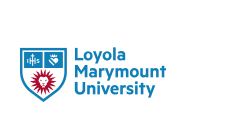Subsistence Marketplaces
Subsistence Marketplaces is an Inter-disciplinary, Inter-Sectoral Journal and Knowledge/Practice Portal.Subsistence Marketplaces is an interdisciplinary, inter-sector (research-education-practice including business, social, and governmental sectors), international journal focused on research, education, and practice that takes a bottom-up approach to studying the broad range of low-income consumers, entrepreneurs, communities and marketplaces around the world.
By subsistence, we refer to the wide range of low-income from extreme poverty to those at the cusp between low and lower-middle income, essentially people and communities barely meeting basic conditions for living.
We use the term “marketplaces” in its broadest and most diverse sense, meaning where goods, services, information, and ideas are exchanged, versus a meaning that restricts the focus to a physical marketplace. Such marketplaces could cover different domains of subsistence, such as health, nutrition, education, and livelihood, different geographies, and different modes, such as physical and virtual.
We emphasize an approach that begins from a bottom-up perspective of the micro-level of marketplaces, consumers and entrepreneurs, rather than the meso or macro levels. Thus, the journal welcomes a broad range of work at different units of analysis from individual to community to organization and society. Unique, though, will be an emphasis on grounding in the circumstances at different units of analysis. Thus, work may focus on any level of aggregation as long as it draws from grounded reality. In other words, perspectives that remain at a high altitude do not fit the journal whereas those that have connection to reality at the ground level conceptually and/or empirically fit well. We invite authors to write to the editor if there is any doubt as to fit as our goal is to be broad without diluting the unique focus.
Also unique will be an emphasis on practice with feedback on proposed studies/interventions, and a focus on translating findings to practice with specificity (e.g., such as through proposing and/or piloting specific initiatives for practice), rather than through implications that remain at a broad or generic level. Thus, implications of the work for practice will be emphasized heavily. The supporting web portal will provide a bridge between research, education and practice.
Our objectives are as follows:
1. To provide a forum for research, education, and practice at the intersection of a wide-range of low-income contexts and marketplaces.
2. To highlight work on subsistence marketplaces that is grounded at the micro-level or reflects ground reality and takes a bottom-up orientation.
3. To provide an ecosystem through the entire research and intervention value cycle from formulation to completion and translation to practice.
Our journal follows an enduring stream of work on subsistence marketplaces over the past decade and a half, with eleven conferences, several special issues or sections, and scholarship and practice from around the world . The journey so far provides a road-map in being bottom-up, bringing out voices of those with the least resources, and involving scholars and practitioners from around the world. We envision a knowledge-practice platform that encompasses a variety of facets from a journal with refereed articles. The portal along with the journal will provide a hub for research and practice that adopts a bottom-up approach to studying low-income consumers, entrepreneurs, and marketplaces. It will be a home for work that begins at the micro-level, examining these contexts in their own right, inside-out rather than outside-in.
The knowledge portal aims to be distinct in a number of ways. It will support the research-practice endeavor end-to-end or, before, during and after through:
• connecting researchers to practitioners
• creating forums for development of research
• providing a space for protocols of planned research
• providing an outlet for research
• enabling the translation from research to practice
• enabling the translation from practice to research
• creating a platform for knowledge-practice or academic-social enterprise
• envisioning new metrics for gauging impact to a broad audience.
Background on the Stream of Subsistence Marketplaces
The Subsistence Marketplaces Initiative (SMI) has pioneered a bottom-up approach to research and practice at the intersection of poverty and marketplaces. Unique to our approach is a bottom-up orientation that begins with a micro-level understanding of buyers, sellers, and subsistence marketplaces. We adopt a marketplace rather than a market orientation, viewing subsistence contexts as more than markets to sell to, rather as individuals, communities, and preexisting marketplaces to learn from. Our focus should be distinguished from macro-level economic approaches, and mid-level business strategy approaches such as base-of-the-pyramid (BOP) research. Our goal is to understand and enable the progress from subsistence marketplaces to sustainable marketplaces, i.e., marketplaces characterized by sustainable production and consumption that enhance individual and community welfare and conserve natural resources.
Our work on subsistence marketplaces over the course of more than a decade and a half has created unique synergies between research, teaching, and social initiatives. In all three arenas, our work involves engagement of students, businesses, and social enterprises as well as a diverse set of faculty and campus entities across different disciplines. We have also created forums to connect a community of researchers and practitioners and enable outlets for publication. Our efforts in research have generated more than 40 authored publications, and we have edited roughly 60 refereed publications through special issues and organized eight biennial conferences bringing together scholars and practitioners. Direct educational experiences, derived from our experiences on this topic, have reached thousands of students on campuses and many more students online. Educational materials are disseminated worldwide through a web portal. This work has led to a unique marketplace literacy educational program that approximately 100,000 individuals have received in seven countries – India, USA, Tanzania, Uganda, Argentina, Honduras, and Mexico-- through the Marketplace Literacy Project, a non-profit organization founded in concert with this initiative, working with partners.
Indexed in "SSRN: Social Science Research Network, Social Science Citation Index, ScienceOpen, PubPsych, PsycINFO, OpenEdition.org, JSTOR: Journal Storage, Google Scholar, Directory of Open Access Journals and Academic Search (EBSCO)".

